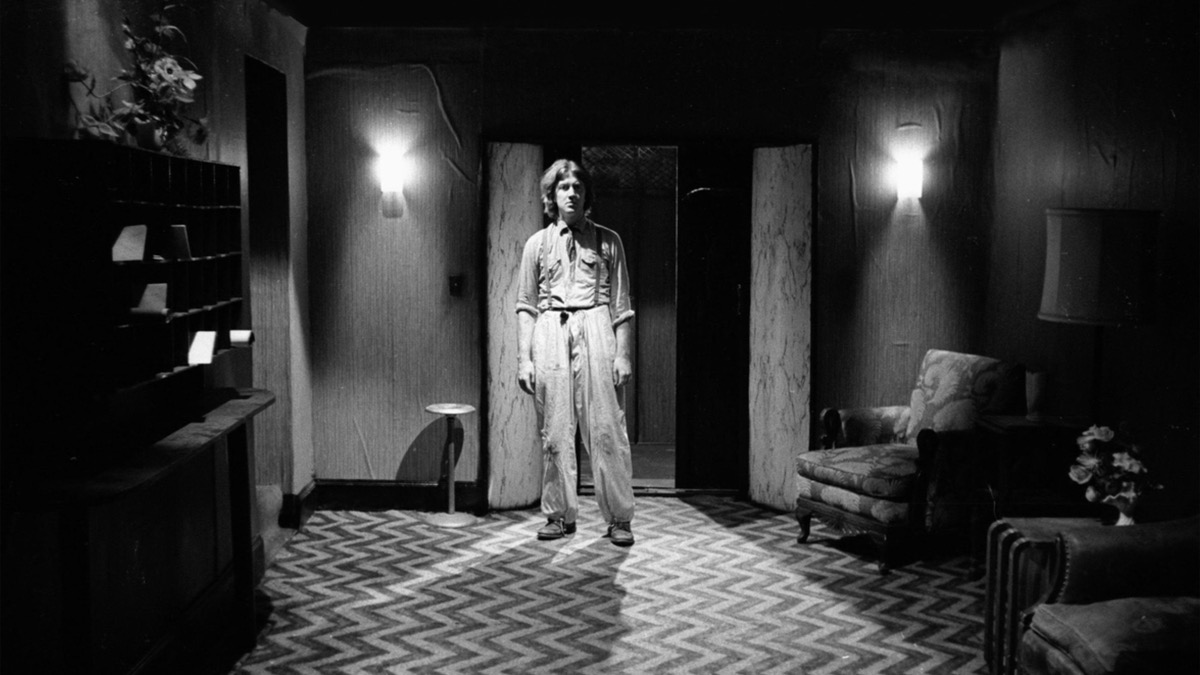
It’s surprisingly hard to see David Lynch’s Eraserhead in the UK, which means it is easy to avoid. To me the title was abstract and off-putting, as was its reputation as one of Lynch’s most experimental, gruesome works. The iconic black-and-white picture of Jack Nance as Henry Spencer always reminded me of Bride of Frankenstein and an older, artier film than I ever seemed to be in the mood for.
To watch it I had to buy a German Blu-ray, which came with an excellent documentary, Eraserhead: Stories, and all of Lynch’s short films up to that point. I also found a Kickstarter-financed interview film, David Lynch: The Art Life. Between those two documentaries you get a good sense of the man as an artist and filmmaker. He’s quite something. His ideas about art and the process of making really chime with me. There is also, of course, the video of him comparing the creative process to fishing, which is fun.
Lynch directed ten films – Eraserhead, The Elephant Man, Dune, Blue Velvet, Wild at Heart, Twin Peaks: Fire Walk with Me, Lost Highway, The Straight Story, Mulholland Drive and Inland Empire – and wrote them all too, apart from The Straight Story, which was written by Mary Sweeney and John E. Roach. He’s a true auteur.
I find his voice soothing, even though it has a grating quality, possibly because he seems like such a gentle, curious soul, and he talks directly, with great enthusiasm, about what he finds interesting. If I’m honest, this is the other reason I chose David Lynch right now – I intuitively know he has something that I need in my own work. Perhaps I’ll have worked it out by the end of the month.
Anyway, Eraserhead – reader, I loved it. It was so imaginative and pure and watchable and laugh-out-loud funny, which I didn’t expect at all. It’s a psychosexual puzzle about the horrors of unplanned parenthood, marriage, intimacy, capitalism, poverty, dreams – you can take it any direction you like. Jack Nance’s tragicomic helplessness and existential anxiety reminded me of comedic actors from the silent era. More than once he made me think of Oliver Hardy. The sound design is incredible, and the visuals are endlessly inventive.
I don’t want to write about what I think the film means. It’s going to stay with me, and there’s no point repeating what others have said. Watch it and make up your own mind. More than the film, the thing I’m most struck by is Lynch himself – how he works with his unconscious mind and processes his life through art. He says in one of his interviews that the past is always in the present, which I have also found to be true.
I’m looking forward to sitting with him, in my mind, at his studio in the Hollywood Hills, for the rest of the month.